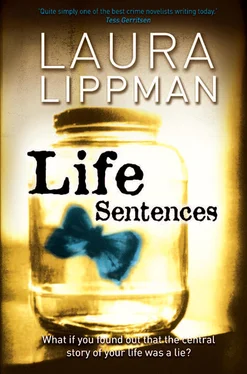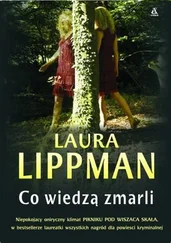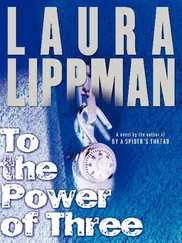1 ...6 7 8 10 11 12 ...18 Again, no one found this odd, least of all me. My father was a man of many emphatic opinions, which he announced with the same vehemence of callers to WBAL shouting about the Orioles and the Colts. The Greek gods were preferable to the Romans. Nixon was a criminal—my father’s verdict long before Watergate. Mr Bubble was bad for the skin and the plumbing. Stovetop popcorn would give you cancer. Pornography was preferable to any ghostwritten syndicate novel, such as Nancy Drew or the Hardy Boys. Girls should not wear their hair short.
The last, at least, was mounted in my defense, when my exasperated mother wanted to chop mine off because I fought so during shampoos. ‘You take over her hair,’ she challenged my father, and he did, finding a gentle cream rinse and a wide-tooth comb that tamed my unruly mane. ‘It’s too much hair for a girl, but you’ll be glad when you’re a woman,’ he often said. One of my happiest memories is of standing in the never-quite-finished bathroom off my parents’ bedroom, my father pulling the comb through my hair, insistent but never cruel. My father—incapable of throwing a ball, bored by most sports—would have been lost with a son. The only man he understood was himself.
So, in the world according to Ric Fallows, insisting on language lessons for his only child was not at all strange. But everyone wondered why my father didn’t tutor me himself. He could read both languages, although he was far more skilled in Latin. Instead, my father took me to the home of a faculty colleague, Joseph Lovejoy, whom I was instructed to call Mr Joe, in the Baltimore fashion.
Mr Joe and his sister, Miss Jill, lived in our neighborhood in a place I liked to call the upside-down house. It was built into a bluff above the Gwynns Falls, with the living room on the top floor, the next floor down housing the kitchen and dining room, and the bedrooms on the garden level. Mr Joe sat with me in the study on the top floor, while my father helped Miss Jill prepare tea—not just the beverage but a proper tea of sandwiches and sweets. The Lovejoys were British, visiting Baltimore on some kind of academic exchange program. Miss Jill had what my father called that famous English skin, although it looked like anyone else’s skin to me. Mr Joe was tall and gaunt, and he had skin that no country would claim.
One particularly warm Saturday afternoon in May, the teakettle whistled on the floor below us. It continued to sing for almost a minute and Mr Joe decided to investigate. I could hear him walking around the floor below, then continuing down the steps to the first floor. He returned a few minutes later and announced that would be all for today. My father arrived, but not Miss Jill with the sandwiches.
‘What about tea?’ I asked.
‘There will be no tea today,’ Mr Joe said.
‘Did the kettle run dry?’
‘Did the—yes, yes, it did.’
‘And the sandwiches, the cakes?’
‘Cassandra, your manners,’ my father said.
I was almost fifteen before I figured it out. By then, I knew my father had lots of romances—‘Not romances! Dalliances. The only romance I ever had was with Annie, and I married her.’ But I didn’t know about any of the others until he left my mother for Annie and I started piecing together my father’s long history of infidelities. He rejects that word, too. ‘I was never unfaithful or faithless where your mother was concerned. Sex meant nothing to me, it was a bodily function. That was the problem. I didn’t know you could have both, sex and love, until I met Annie.’
We had this conversation a few days before I headed to college. My father had decided to lecture me on the double standard, persuade me that my own virginity was precious. He was a little late.
‘And Miss Jill?’
‘Miss Jill. Oh, the redheaded Brit. Yes, she was one. But not right away. It wasn’t a plan. Well, maybe it was a little bit of a plan.’
‘What did her brother think?’
‘Her brother? Her brother?’ My father was genuinely puzzled.
‘Mr Joe.’
‘Mr—oh, honey, he was her husband. Where did you get the idea that they were brother and sister?’
To this day, I comb my memory, certain I will find the moment of the lie. Perhaps it was my father’s insistence on calling them Mr Joe and Miss Jill, a localism that my father normally belittled. But what would have been the point in deceiving me? A sibling relationship may have kept Mr Joe from being a cuckold, but it would not excuse what my married father did with Miss Jill while ‘making tea’. A tea, I see now, that required no preparation—the cakes were store-bought, the sandwiches made well ahead of our visit, the crustless bread dry from the air yet damp from the cucumbers that had sweated on them.
Why did I think they were brother and sister? Because even my five-year-old self sensed something was off. My language lessons ended when the Lovejoys went back to England that summer. Miss Jill— Mrs Lovejoy —sent us Christmas cards for several years, but my mother never added them to our list. I spent my junior year abroad in London and discovered I hated the social convention of tea. But I loved Englishmen, especially redheaded ones—gingers—and fucked as many of them as I could.
BANROCK STATION February 25–28
Cassandra had begun her last two projects by packing a laptop and retreating to a weekend resort, attempting to replicate the serendipitous origins of her first book. My Father’s Daughter had started almost by itself, an accident of heartbreak and idleness: A romantic getaway, planned for West Virginia, had become a solitary one when her first husband left her, walking out after revealing a gambling addiction that had drained their various bank accounts, meager as they were, and saddled their Hoboken condo with a second and a third mortgage that made it practically worthless, despite the robust real estate market of the mid-nineties.
Disconsolate, terrified of the future, but also aware that the room was prepaid, she had driven hours in the wintry landscape—God help her, it was the weekend before Valentine’s Day—thinking that she would spend the two nights and two days crying, drinking, and eating, but she ran out of wine and chocolate much faster than anticipated. The second night, a Saturday, she awoke at 2 A.M., her head strangely clear. At first, she chalked it up to the alcohol wearing off, but when she was still awake an hour later, she pulled on the fluffy robe provided by the bed-and-breakfast—one of two fluffy robes, she noticed, feeling the clutch and lurch of fresh heartbreak—and made her way, trancelike yet lucid, to the picturesque and therefore infuriating little desk not really intended for work.
She found a few sheets of stationery in the center drawer and began scratching out, with the crummy B and B pen, the first few pages of what would become My Father’s Daughter . She had kept those pages, and while the book changed considerably over the next six months, as she wrote to blot out her pain and fear, those first few pages remained the same: I didn’t speak until I was almost three years old . Later, when she began to query agents, a famous one had said he would represent her, but only if she consented to a rewrite in which she excised that opening.
He took her to lunch, where he explained his pet theory of literature, which boiled down to The first five pages are always bullshit .
‘It’s throat clearing,’ he said over a disappointingly modest lunch of spinach salad and bottled water. Cassandra had hoped the lunch would be grander, more decadent, at one of the famous restaurants frequented by publishing types. But the agent was in one of his drying-out phases and had to avoid his usual haunts.
Читать дальше












